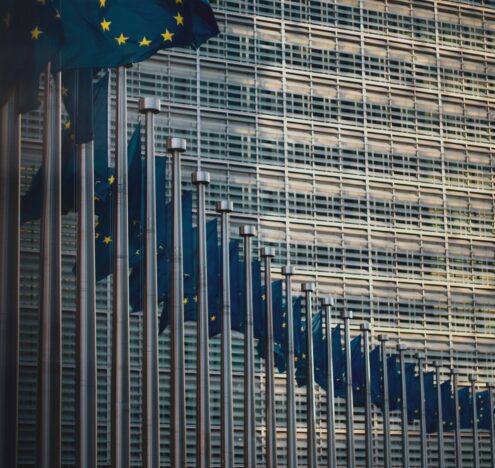Every morning I climb in a yellow cab and drive past Jordan’s parliamentary complex near old Amman on my way to work. But since Wednesday night last week, the roads near the complex and across Amman have been blocked by thousands of protestors who have taken to streets across the country to protest a new tax law. While the law aims for economic reform—cracking down on tax evasion and boosting tax revenue—many Jordanian protestors consider the law evidence of the elected government’s failed economic policies and rampant corruption, which has resulted in nearly $1 billion in embezzled or wasted state funding, according to a report by Al-Jazeera.
The proposed income tax law in question would expand the percentage of Jordanians paying taxes from 4.5 percent to 10 percent by lowering the taxable income from $34,000 to $22,500 for families and from $17,000 to $11,200 for individuals. But in a country with a reported poverty rate of 14.4 percent and an unemployment rate of 18 percent in 2010 — prior to the economic downturn brought on by the Syrian war in 2011 — conditions are already bad. While the number of Jordanians paying income tax is relatively low, high taxes on sales of automobiles, increasing costs of gas and electricity, and the costs of living in the most expensive Arab city are hurting the country’s poorest citizens.
On one hand, tax reform is necessary for Jordan to decrease its overall debt accumulated since the beginning of the Syrian conflict in 2011. In 2017, Jordan’s annual debt of about $40 billion accounted for roughly 95 percent of its annual GDP, a significant increase of roughly 70 percent since 2011. On the other hand, the elected government, which is responsible for designing and implementing economic reforms and IMF-led austerity measures in tandem with its loan responsibilities, lacks the trust of the people. To add insult to injury, the Jordanian parliament announced new increases in the cost of gas and electricity following the first day of protests. While King Abdullah II has directed the parliament to roll back the additional increases and received the resignation of Prime Minister Hani al-Mulki, demonstrations are set to continue until the income tax law is repealed.
Jordan is no stranger to protests. But Jordanian demonstrators offer something that is not traditionally characteristic of the Middle East in the mind of western observers: peaceful, dignified demonstrations (aside from a few instances of violence) and disciplined security forces with an emphasis on protecting civilians while enforcing rule of law. But this is a thin line that security forces, the government, and the people must walk in order to ensure that Jordan remains stable and safe, unlike Syria whose 2011 protests unwound into national violence.
These protests shed light on deeper frustrations across Jordanian society that have simmered in recent years as increasing tides of socioeconomic inequality have contributed to a high cost of living, increased competition for jobs, and rising prices of gas, electricity, and bread. Many are angry that there is not a noticeable trickle-down effect for Jordanians who are forced to carry the tax burden. In a statement to the Jordan Times, Ali Abous, a leading protest organizer and head of an umbrella group of unions and professionals that represents nearly 500,000 Jordanians, criticized the government’s inability to address the country’s economic woes and challenge tax evasion, noting that Jordanians already pay more in taxes than they receive in services. Mulki’s resignation is not the end goal. Abous announced that a one-day strike will occur across the country on June 6 to continue the push against the tax law, adding, “we want to change the path, not the individuals.”
While the new tax law could be repealed in the coming days or weeks, Jordan’s financial crisis will remain, and the government will still be forced to implement austerity measures to erode the Kingdom’s mountain of debt. There is no simple fix. Reducing Jordan’s high sales tax to lessen the impact of economic reform on Jordan’s lower-income households and ensuring that taxpayers receive public services for the taxes they pay would be a good place to start. But, in the short-term, open dialogue between the newly-appointed Prime Minister Omar al-Razzaz, civil society groups, representatives of impacted communities, and labor unions over the new law is necessary to ensure that the law aims to proportionally distribute the tax burden, keep the parliament ethically accountable to its policies, and address systemic problems, such as corruption, through both procedural and systemic reform.




















